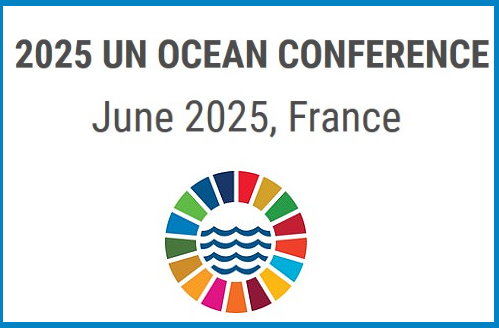 The 2025 United Nations Ocean Conference (UNOC3) is scheduled for June 2025 in Nice, France. Costa Rica and France are the co-organisers. UNOC3 is to rally more political, financial, technical and societal engagement in support of the implementation of Sustainable Development Goal 14: Conserve and sustainably use the oceans, seas and marine resources for sustainable development (SDG 14). An extensive preparatory process is ongoing with conferences e.g. in Costa Rica in June and at the UN in New York in July 2024. Ten themes have been identified to shape the programme in Nice. They are at the centre of so-called Ocean Action Panels. Mundus maris has responded in the public consultation to underpin three of them.
The 2025 United Nations Ocean Conference (UNOC3) is scheduled for June 2025 in Nice, France. Costa Rica and France are the co-organisers. UNOC3 is to rally more political, financial, technical and societal engagement in support of the implementation of Sustainable Development Goal 14: Conserve and sustainably use the oceans, seas and marine resources for sustainable development (SDG 14). An extensive preparatory process is ongoing with conferences e.g. in Costa Rica in June and at the UN in New York in July 2024. Ten themes have been identified to shape the programme in Nice. They are at the centre of so-called Ocean Action Panels. Mundus maris has responded in the public consultation to underpin three of them.
Ocean Action Panel 1: Fostering sustainable fisheries management including supporting small-scale fishers.
Question 1: What transformative action needs to happen to accelerate progress?
Answer:
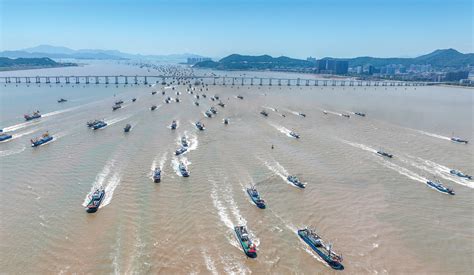
From Science.org
The most promising transformative action consists of a three-pronged approach: (a) place fisheries management on more solid foundations of taking out only what can regrow to allow overfished populations to recover and regain lost productivity, (b) stop harmful fisheries subsidies which enable continued overfishing, and (c) implement the Voluntary Guidelines for Securing Sustainable Small-scale Fisheries (SSF) from national to local levels, including by recognising and supporting the role of men and women along value chains.
Question 2: What evidence can you share of new ways of working/partnerships that have supported SDG 14?
Answer:
- “The principles of ecosystem-based sustainable fishing are straightforward and not difficult: take out less than is regrown; let fish grow and reproduce before capture; use fishing gear with low impact on the environment and on other species; provide refuge or no-take areas as reservoirs of genetic diversity; and maintain functional food webs by reduced fishing of forage species, such as anchovies, sardines, herring, or krill”. Source: Froese, R. and Pauly, D., 2024. Taking stock of global fisheries. Current stock assessment models overestimate productivity and recovery trajectory. Science, 385(6711):824-825Science, 385(6711):824-825. FAO member states should proceed to implementing the ecosystem approach to fisheries in conjunction with establishing marine protected areas for resource recovery, long recognised as necessary. They can now use the new, less data-hungry and more robust methods that work not only in industrialised countries, but also in the Global South. The EU should enforce its policy of prohibiting overfishing and rely for resource assessments based on precautionary principles to determine fishing quota. This speaks particularly to SDG targets 14.2, 14.4, and 14.5.
- WTO members have missed the deadline of SDG 14.6 in 2020. The 2022 Ministerial Conference reached a first Agreement towards reducing harmful fisheries subsidies. 56 countries have deposited their instruments of acceptance, but for entering into force it needs two thirds of the 164 WTO members. Meanwhile negotiations are underway to achieve consensus on a more effective second Agreement to deliver, after all, phasing out harmful fisheries subsidies in line with SDG target 14.6.
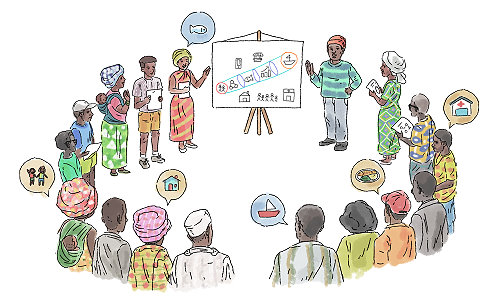 Small-scale fishers, fishworker organisations, and indigenous communities all depend strongly on healthy and productive resources and functioning ecosystems, recognised tenure, access to markets and social services to secure sustainable livelihoods. Stronger cooperation need to be developed between these resource users and civil society organisations engaged in environment protection. Partnering with national governments, scientists, and international organisations can enable equitable fisheries management for sustainability. The ‘Call to Action from Small-Scale Fishers‘ (SSF) in combination with the ‘Rules of Conduct‘ for working with SSF show how such a coordinated effort can build collaborations towards sustainable and equitable fisheries management. Mundus maris has moreover tested inclusive participatory methods to help operationalise the SSF Guidelines through dialogue-based strengthening of capacities in the safe space of the SSF Academy, where everybody is welcome to contribute to robust and locally adapted solutions. This all speaks to SDG target 14.b.
Small-scale fishers, fishworker organisations, and indigenous communities all depend strongly on healthy and productive resources and functioning ecosystems, recognised tenure, access to markets and social services to secure sustainable livelihoods. Stronger cooperation need to be developed between these resource users and civil society organisations engaged in environment protection. Partnering with national governments, scientists, and international organisations can enable equitable fisheries management for sustainability. The ‘Call to Action from Small-Scale Fishers‘ (SSF) in combination with the ‘Rules of Conduct‘ for working with SSF show how such a coordinated effort can build collaborations towards sustainable and equitable fisheries management. Mundus maris has moreover tested inclusive participatory methods to help operationalise the SSF Guidelines through dialogue-based strengthening of capacities in the safe space of the SSF Academy, where everybody is welcome to contribute to robust and locally adapted solutions. This all speaks to SDG target 14.b.
UNOC3 brings together government representatives with a wide array of rights holders and stakeholders with diverse expertise and experience. Their dialogue offers opportunities for exploring pathways towards the urgently needed change that will close the implementation gap.
Keywords: Co-empowerment, Ecosystem-based managemen
Ocean Action Panel 2: Conserving, sustainably managing and restoring marine and coastal ecosystems including deep-sea ecosystems.
Question 1: What transformative action needs to happen to accelerate progress?
Answer:
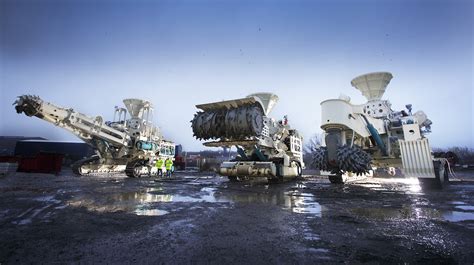 A moratorium on deep-sea mining is imperative to prevent potentially irreversible harm. Mining must not be allowed so long as the deep-sea ecosystems and their role in the Ocean as a whole are not much better documented and understood, and negative impacts restrained. More national governments must advocate this moratorium at the International Seabed Authority (ISA). They must listen to the concerns extensively voiced by science, by civil society, Indigenous Peoples and communities, and youth groups. The third UN Ocean Conference is a prime venue to build a broader consensus for safeguarding the structure and functioning of all marine ecosystems.
A moratorium on deep-sea mining is imperative to prevent potentially irreversible harm. Mining must not be allowed so long as the deep-sea ecosystems and their role in the Ocean as a whole are not much better documented and understood, and negative impacts restrained. More national governments must advocate this moratorium at the International Seabed Authority (ISA). They must listen to the concerns extensively voiced by science, by civil society, Indigenous Peoples and communities, and youth groups. The third UN Ocean Conference is a prime venue to build a broader consensus for safeguarding the structure and functioning of all marine ecosystems.
Question 2: What evidence can you share of new ways of working/partnerships that have supported SDG 14?
Answer:
More than 120 non-governmental organizations (NGOs), fishers’ associations, and law and policy institutes worldwide are working together under the umbrella of the Deep Sea Conservation Coalition (DSCC), founded in 2004, to ensure the protection of vulnerable deep-sea ecosystems. The advocacy work of the coalition and its convening ability to support solution oriented dialogue has been effective in enabling consensus on the BBNJ Treaty and led to 32 countries so far supporting a moratorium or ban on deep-sea mining. The work of the coalition illustrates that consistent cross-sector dialogue and collaboration can focus minds and institutions on agreements in favour of ocean conservation.
Keywords: Moratorium, Cross-Sectoral Cooperation, Deliberation for Ocean Protection
Ocean Action Panel 8: Increasing ocean-related scientific cooperation, knowledge, capacity building, marine technology and education to strengthen the science-policy interface for ocean health.
Question 1: What transformative action needs to happen to accelerate progress?
Answer:
The unprecedented challenges to ocean health from overfishing, climate change, and pollution need increasing ocean-related scientific cooperation from the global to the local level. This is most effective when done in combination with science capacity enhancement and ocean literacy. Citizens are impact experts, who need to be involved in inclusive processes.
Question 2: What evidence can you share of new ways of working/partnerships that have supported SDG 14?
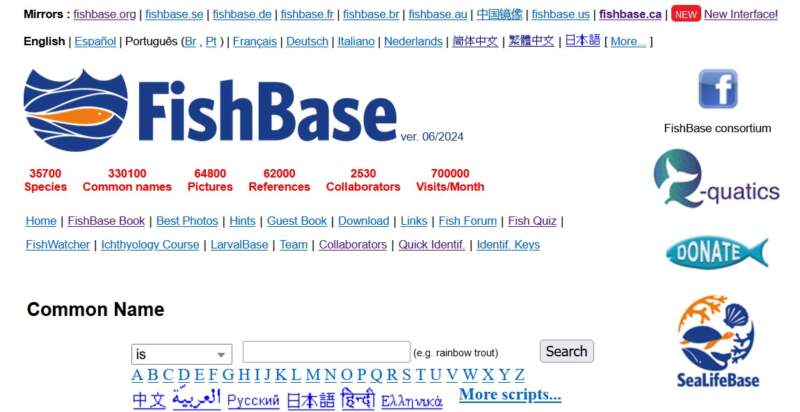 Answer:
Answer:
Examples of very wide international scientific cooperation leading to global, publicly accessible information systems, are
– FishBase.org – a global biodiversity information system which covers all marine and freshwater fish known to science, currently 35,700 species, 330,100 common names in 348 languages, compiled from 62,000 references in partnership with >2,500 collaborators. It offers also a range of analysis tools useful e.g. for fisheries management. 700,000 visits/month
– SeaLifeBase.org – a global biodiversity information system which covers potentially all non-fish marine organisms, currently 71,400 species. It uses the taxonomic structure of the Catalogue of Life, which is itself enhanced by expert-reviewed taxonomic data of the World Register of Marine Species. 600,000 visits/month
– Aquamaps.org – a global species distribution modelling project of FishBase and SeaLifeBase which generates predictive maps of the natural range of aquatic species based on species’ environmental tolerances, currently >33,500 species
These three information systems are hosted by Quantitative Aquatics, Inc., a scientific non-profit organisation based in the Philippines and scientifically overseen by an international consortium of scientific institutions.
 Collaboration on a simple user interface has produced the FishBase Guide app for Android devices that can be searched with common names in any country to respond e.g. to producer and consumer interest in getting adult fish for human consumption and avoid juveniles, or use the app for educational purposes. Likewise, collaboration is sought to set up a specific user interface in SeaLifeBase to help reduce species introductions through maritime traffic.
Collaboration on a simple user interface has produced the FishBase Guide app for Android devices that can be searched with common names in any country to respond e.g. to producer and consumer interest in getting adult fish for human consumption and avoid juveniles, or use the app for educational purposes. Likewise, collaboration is sought to set up a specific user interface in SeaLifeBase to help reduce species introductions through maritime traffic.
– SeaAroundUs.org – is a connected research initiative at The University of British Columbia which assesses the impact of fisheries on the marine ecosystems of the world and offers mitigating solutions to a range of stakeholders. It presents fisheries and fisheries-related data at spatial scales that have ecological and policy relevance, such as by Exclusive Economic Zones, High Seas, or Large Marine Ecosystems.
Altogether these scientific information systems have already demonstrated their worth in analyses and capacity strengthening efforts, supporting fisheries management and wider outreach, including showing promise in being used in gaming approaches and in a biodiversity role play for young adults developed by Mundus maris and currently in the testing phase. They thus play an important role in promoting ocean literacy and the science-policy interface for ocean health as mandated in SDG 14.8.
UNOC3 can be a forum for articulating further demand and opportunities for cooperation on specific interfaces facilitating the even wider use and continued development of these impactful open access resources.
Keywords: global biodiversity and fisheries information systems, ocean literacy, open access
More information about UNOC3 is available here, more specifically on the stakeholder consultation here.
Small-Scale Fisheries Academy
- Make Fishing Fair in the EU, 25 March 2025
- Human – Biodiversity Relationships Across Scales
- World Fisheries Day, 21 November 2024, celebrated in Nigeria
- Mundus maris participated in the 2024 World Fisheries Day organized by Canoe and Fishing Gear Association of Ghana (CaFGOAG).
- Mundus maris contribution to the UNOC3 public consultation
- Small-Scale Fisheries Summit in Rome, 5-7 July 2024
- Regional Symposium on European Small-Scale Fisheries, Larnaca, Cyprus, 1-3 July 2024
- Baltic Fisheries Emergency Meeting, Brussels, 26 June 2024
- Ambivalent role of Market and Technology in the Transitions from Vulnerability to Viability: Nexus in Senegal SSF
- Shell fisheries as stewardship for mangroves
- African edition of 4WSFC in Cape Town, 21 to 23 November 2022
- World Fisheries Day, 21 November 2023
- Webinar: Nigeria’s Fisheries challenges and opportunities
- Presenting the FishBase app at the Symposium in Tervuren
- MARE Conference on Blue Fear – Mundus maris reflects
- The Transition From Vulnerability to Viability Through Illuminating Hidden Harvests, 26 May 2023
- EGU sessions focused on geoethics and joint learning, 23-28 April 2023
- Solidarity with artisanal fishers in Senegal and Mauritania
- The legal instruments for the development of sustainable small-scale fisheries governance in Nigeria, 31 March 2023
- Tools for Gender Analysis: Understanding Vulnerability and Empowerment, 17 February 2023
- Community resilience: A framework for non-traditional field research, 27 January 2023
- Sustainability at scale – V2V November webinar
- European edition of 4WSFC in Malta, 12-14 September 2022
- Mundus maris contributes to SSF Summit in Rome
- Women fish traders in Yoff and Hann, Senegal, victims or shapers of their destiny?
- The Academy continues its work in Yoff
- Illuminating the Hidden Harvest – a snapshot
- Virtual launch event FAO: International Year of Artisanal Fisheries and Aquaculture
- The Small-Scale Fisheries Academy as a source of operational support to PA Guidelines
- World Fisheries Congress, Adelaide, 20-24 September
- Mundus maris supports the fight of Paolo, the fisher, in Tuscany, Italy
- Catching-up – SSF Academy Yoff, 27 Febr. 2021
- Strengthening capacities of the actors for sustainable small-scale fisheries
- Testing training methods during the pilot phase of the SSF Academy in Senegal
- A premiere – launch of a Small-Scale Fisheries Academy in Senegal
